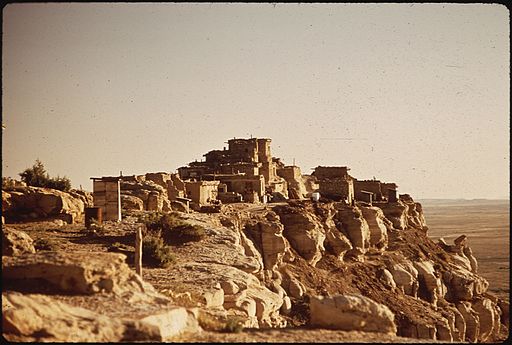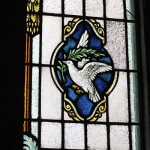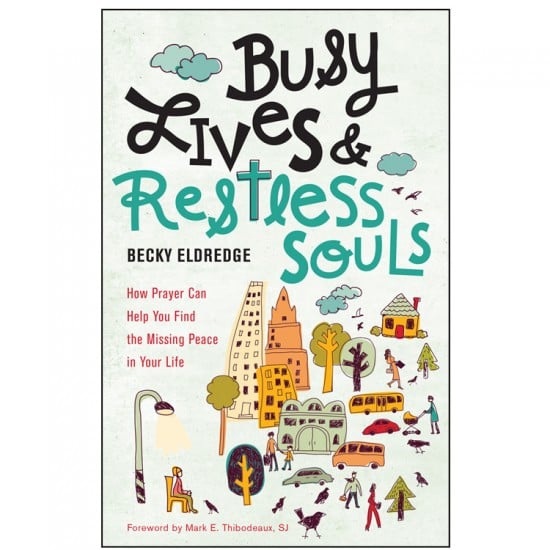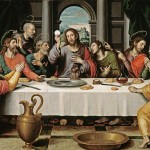
My long journey to Catholicism included some very interesting detours. I am sure, though, that two in particular were the best preparation for this Faith that I could have ever received.
Back in the 60s, in her quest to save me from an increasingly dangerous inner city neighborhood, my mother stumbled upon one of Chicago’s best kept, or rather, most closely guarded secrets. It was one of the most rigorous and progressive high schools in the city and perhaps the entire country, surrounded by a neighborhood inhabited mostly by wealthy and progressive Jewish doctors, lawyers and businessmen.
Their children were beautiful and brilliant, some seniors already being courted by NASA and some of the best pharmaceutical and chemical companies in the world. I’d always done well in school, but in this school doing “well” was not enough. You were expected to excel.
The children expected this of you, not just the teachers. They had a reputation to maintain, and they were fierce about it.
They were also the first Jews I’d ever met. Proudly, loudly Jewish, some of them children of Holocaust survivors and families who had fled persecution in Eastern Europe. It surprised me, at first, to discover how devout they were. Some went to “shul” before and after school. The cafeteria served special meals when necessary, and the school was deserted during the highest of holy days.
They knew who they were and what that meant. Could trace their lineage, through their last names, back to and through the tribes of the Bible. As an African American who knew nothing about her own tribal or geographical origins, I was jealous of these children whose names were written in the Good Book itself. Who could, I deduced, even be related to Jesus.
I watched in fascination and awe as some of the boys who had most vehemently decried the Viet Nam War flew off to fight in the Seven Day War to protect their Jewish homeland. Everything they did, the stellar grades and test scores, even their family wealth was a way of preserving and paying homage to their heritage.
God was at the center of their lives. They had been “chosen,” and they took it seriously. I had never seen anything like it before. But I would see it again, almost two decades later after I had excelled in my own career as expected, but found the fast lane almost as dangerous as that neighborhood my mother and I had fled from back when we moved into their world.
I had enjoyed my time as a features reporter at the Chicago Sun Times, but it had also been a tumultuous one. Our sister newspaper failed, jobs were shuffled and lost, and morale was low. And I was growing tired of the celebrity beat and the relentless search for scoops.
So when my latest love landed a job out west and insisted I join him, I jumped at the chance. And a few years later, when the love was all but gone, I stumbled upon one of America’s best kept, or most closely guarded secrets myself.
The Hopi Tribe hired me as a public relations consultant, and I found myself working with and living among another proud people who put God at the center of their lives. They were the descendants of ancestors who had seen ancient Central and South American empires implode, and went in search of a place where they would be forced to live hand-to-mouth, relying upon God for survival.
The Hopi see God everywhere. The year unfolds according to a calendar of religious events for which they are constantly preparing. Every member of every clan, even the elderly and disabled, has a role to play in those ceremonies and in village life. In fact, the men in the family I married into had once all been Sun Chiefs, in charge of making sure that schedule was followed by watching the how the sun and stars rose up over the horizon throughout the year.
On the mesas, plants and animals are lovingly sung to and cared for like members of the family. The whole world is sacred, and the spirits dance on weekends to thank God for every bit of it. I would sit on the rooftops in ancient villages totally mesmerized by these weekend celebrations where the katsinas redistribute the wealth from the harvest in big baskets and boxes.
You can’t go hungry or homeless on Hopi. Like my Jewish friends, everything they do is homage to God and the ancestors who chose them to live in their own special place in their own special way. And I envied them as I had envied my Jewish friends, too.
What would it be like, I wondered, to know and love God so well? To be able to point to a page in the Bible or a place on this earth and know that God had put you there?
I could not be Hopi. Or Jewish. And the religions of my own distant African ancestors would have been foreign and uncomfortable to me. Even the more recent Protestant ones my parents professed had not fit me well. Each church had its own way of teaching them, and seemed, sometimes, to contradict one another.
And the worship began and ended at the door of the church. The Commandments did not seem to apply to our daily lives. Prayers before meals and bedtime seemed perfunctory. And what else was there?
The devout went to services often during the week. But they were often ridiculed, as I recalled. And they gave as good as they got, damning the nonbelievers to Hell and feeling haughtily sorry for us. I didn’t want that.
But then one day, I was “chosen.” God chased me. And through grace and the loving support of some very special people, I discovered that Catholicism could give me what the Hopis and my Jewish friends had been born with: a connection to the Divine that had been passed directly down from God to man through the centuries, according to His plan.
The Hopis had katsinas, I have saints. The Hopis had the face of Dawa the Sun/Creator, ringed by feather rays, I have a Host ringed by rays of gold. My Jewish friends’ history and holidays were now the precursors of mine. We are “related” through Christ.
And through Christ I was asked to do more than just pray on Sundays. I was asked to be Christ-like every day, to “redistribute the wealth” through good works and prayer—to place God in the center of my life.
They taught me well, the family and friends I met on my way to my own Faith. And enkindled that ceaseless yearning for a Faith of my own that only Catholicism could satisfy.
To them in their own languages I say, “Shalom” and “Askwali.” And thanks be to God for the gifts of their friendship and wisdom.
Photo credit: Terry Eiler, 1944, Photographer (NARA record: 1497322) (U.S. National Archives and Records Administration) [Public domain], via Wikimedia Commons











